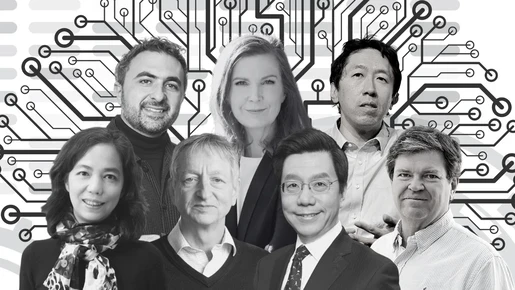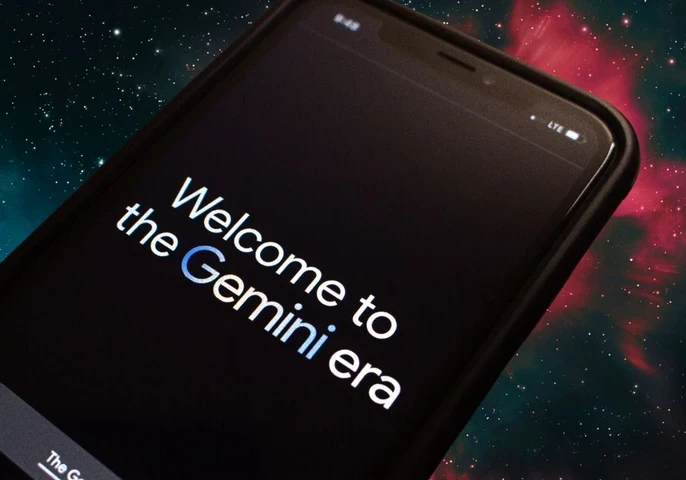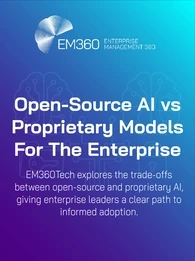Less than a year ago, the Metaverse was heralded as the future of urban living. But as the AI race heats up, Zuckerberg’s virtual world has been left in the dust.
The technology has been largely forgotten about since the launch of OpenAI’s ChatGPT last November, which has gripped Silicon Valley and left Big Tech companies franticly moving resources to secure their place in the promising AI market.
With AI taking hold of the tech industry, some of the largest most renowned metaverse pioneers have already closed shop and moved their attention towards generative AI development.
Microsoft – once a leader in the development of virtual workspaces – has practically shut down all of its metaverse projects, instead honing in on its $11 billion investment into OpenAI while realigning its business trajectory to counter macroeconomic headwinds.

Even Meta, which changed its name from Facebook as part of CEO Mark Zuckerberg’s bid to demonstrate the firm’s commitment to the metaverse, has taken off its clunky VR goggles and accepted a harsher reality.
The social media giant has been gradually turning away from metaverse projects over the past six months as part of Zuckerberg’s “Year of Efficiency,” which has seen the firm axe more than 20,000 employees since November.
Zuckerberg had previously refused to back down from his commitment to the metaverse, claiming that spending on Reality Labs – the division focused on building the metaverse into a set of products – would only increase despite the project losing billions of dollars.
But as economic pressures tighten, it appears that the social media giant now finally turning its attention away from its expensive metaverse projects.
In a note addressing the most recent round of layoffs, Zuckerberg only mentioned the metaverse twice in over 2,000 words, while AI development was described as the company's "single largest investment.”
After suffering its first-ever drop in ad sales, Meta is also no longer pitching the metaverse to advertisers, The Information reports.
Instead, it has begun incentivising advertisers with Reels and its array of new AI tools, such as Advantage+, a program released last year that uses machine learning to deliver targeted ads across Meta’s platforms.
Hype turns to Hope
While Zuckerberg has turned his focus to the development of generative AI, it appears he has still not buried his dream of transporting life to the digital world just yet.
In a meeting with employees last month announcing further layoffs, the Facebook Co-founder said: “The two major technological waves driving our road map are AI today and, over the longer term, the metaverse.”
With Zuckerberg still perceiving the metaverse still a staple of Meta’s future, it appears his sudden pivot to generative AI may serve as a way to empower his virtual space projects rather than abandon them entirely.
Meta’s focus on generative AI will provide a way for the company to recuperate its Metaverse losses and advance AI tools that could one day play a critical role in advancing virtual spaces.
"We're starting by pulling together a lot of the teams working on generative AI across the company into one group focused on building delightful experiences around this technology, Zuckerberg wrote in a post shared on Facebook.
"In the short term, we'll focus on building creative and expressive tools. Over the longer term, we'll focus on developing AI personas that can help people in a variety of ways."

LLMs Reshaping Digital Workflows
How large language models move from chatbots to core engines for support, content, legal and clinical workflows across the enterprise.
The metaverse has been in decline for several months. John avlon: spread the love the metaverse is not dead yet, and some remain hopeful. But he says it's now cruel, and its image of disruptive innovation has taken a .
— Gretel Mickey (@GretelMickey) April 19, 2023
While hype for the Metaverse may have flatlined, experts note that the rise of generative AI should be seen as a glimmer of hope for the virtual realm rather than a death warrant.
“ChatGPT stole the metaverse’s thunder in terms of hype. But all these technologies will contribute to the growth of the metaverse,” Sam Huber, CEO of LandVault said.
“Imagine if you could use Generative AI to create any metaverse experience in a matter of minutes. This is the ‘WordPress moment’ when anyone can build their metaverse experience for almost no cost, democratising access to the metaverse. So we do not see them as competitive trends, but instead as highly complementary.”
AI Power Brokers to Watch
From Microsoft–OpenAI to Google Gemini, meet the leaders directing capital, talent and roadmaps in the most contested tech arena.

An industry divided
As per Google trends, the metaverse hype has largely flatlined, while anticipation for AI continues to soar.
Unlike recent advancements in AI, the metaverse has divided the tech world throughout its development, with many questioning whether the metaverse truly represents the future of technology.
To read more about generative AI, visit our dedicated AI in the Enterprise Page.
A 2022 survey conducted by the Pew Research Center found that only 54 per cent of experts believe that by 2040 metaverse will be a well-functioning, fully-immersive aspect of daily life for at least half a billion people globally by 2040.
The whole VR metaverse thing is dead, its the AI age now. https://t.co/ByzcgBjuTK
— Koek Wei Chew (@Wckoek) April 18, 2023
The 46 per cent of technology innovation that did not back this claim predicted the opposite, believing that the metaverse will fail to meet industry expectations and Zuckerberg’s promise.
For now, Meta has said it will continue the legacy of the metaverse for now by continuing to develop its virtual headsets but will focus its development on target audiences such as gamers and the crypto world.
According to experts, this will temporarily preserve fundamental use cases of the metaverse, preventing the platform from dying out completely.
“When we look at the metaverse and compare 2023 versus 2022, we are witnessing less media hype and a move to more practical use cases of the metaverse,” says Karl Escritt, CEO of Like Digital & Partners.
“There are 3 billion gamers, and the metaverse is just an extension of gaming technologies into broader use cases.”







Comments ( 0 )